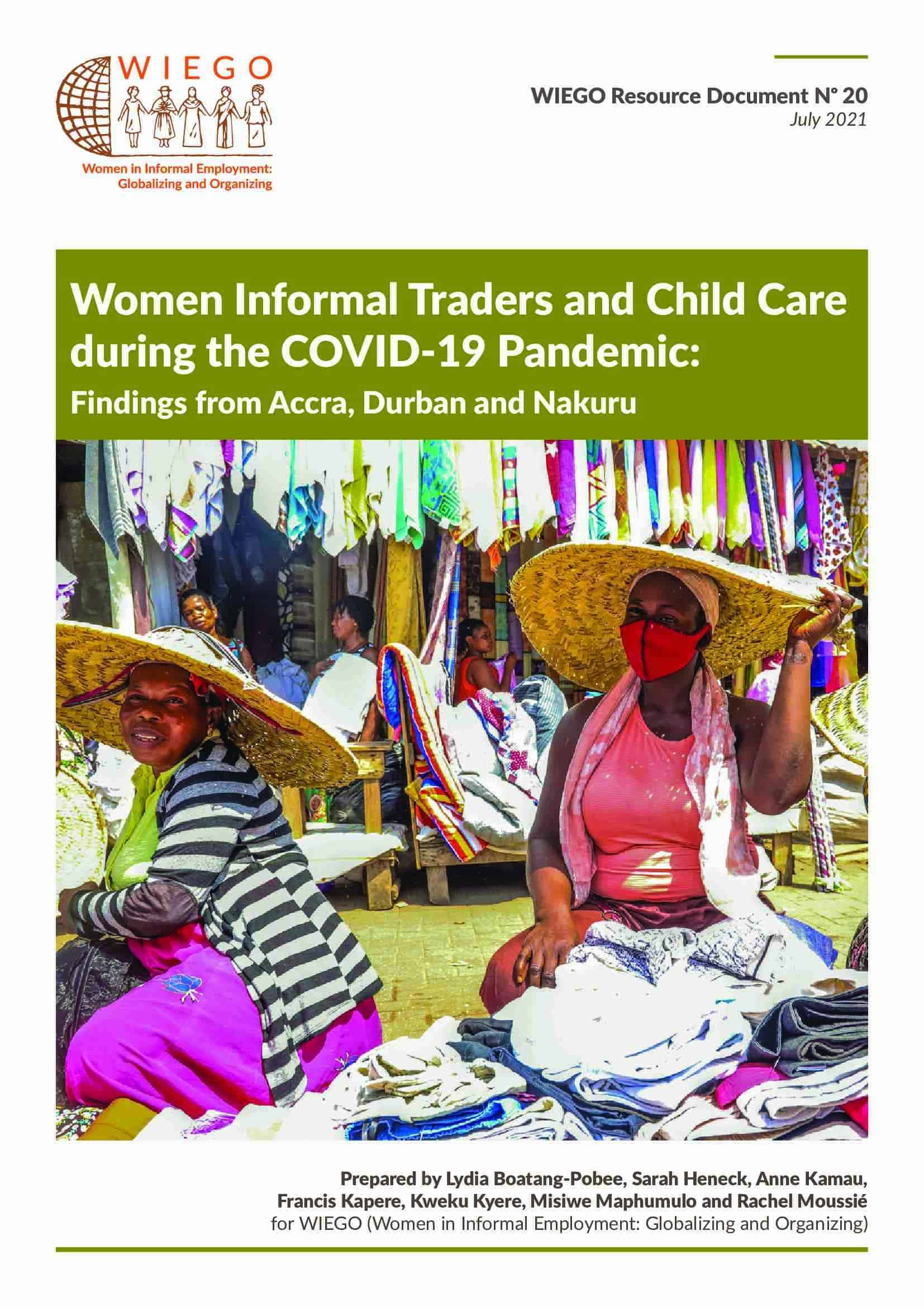Women Informal Traders and Child Care during the COVID-19 Pandemic: Findings from Accra, Durban and Nakuru
Key Points
- The public health measures taken to contain the pandemic coupled with the economic slowdown have significantly reduced women informal traders’ earnings across the three cities. With limited access to cash transfers and food relief, women informal traders must continue working in markets during the pandemic to earn enough for food and other necessities.
- Informal food trading was deemed an essential service in all three countries allowing informal traders to sell fresh produce and cooked food during lockdown periods. This was important to guarantee food security in cities. Yet, the research shows that lower earnings are leading to greater food insecurity in informal traders’ households impacting on young children’s nutrition and breastfeeding practices among working mothers.
- Creche and school closures have forced many women informal traders to find alternative care arrangements. They must consider different trade-offs between a set of poor options. Some women informal traders bring their young children to the market or city streets while they trade despite their fears of infection.
- Even prior to the pandemic, many women informal traders brought their young children to the market. This can support breastfeeding and attachment to primary caregivers, but also reduces women informal traders’ earnings as caring for young children while working is distracting, disrupts working hours and can be off-putting for customers.
- Across the three cities, women informal traders expressed four key demands for food relief, cash transfers, quality and affordable child care services in markets, and financial assistance to restart their businesses.
- City markets and streets are regulated trading spaces as most street vendors and market traders pay licensing fees, tolls and taxes to operate. In return, informal traders expect safe and hygienic trading spaces through municipal investments in public health measures and improved water and sanitation facilities. Additional investments in child care facilities for young children are needed to support women informal traders’ earnings and enhance the impact of public health measures taken in markets to contain COVID-19.
View list of all: Resource Documents

